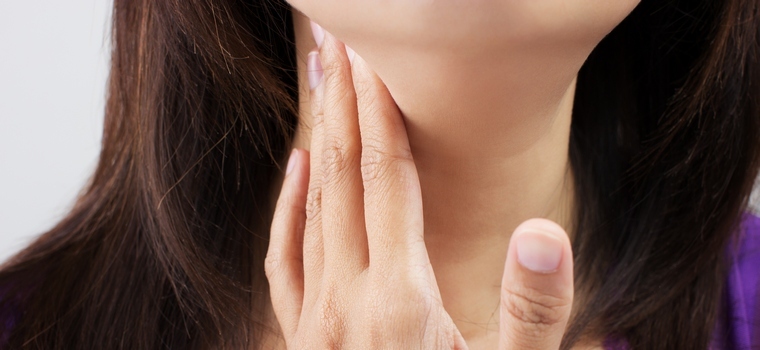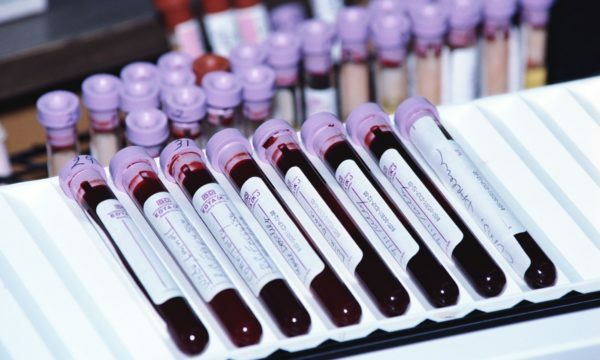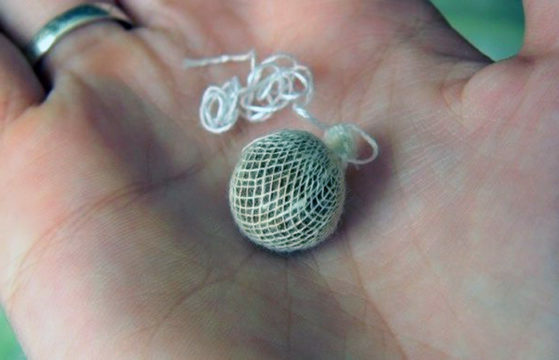The thyroid gland is a small, unpaired organ in the human body. Unfortunately, it is in it there is a large number of different pathologies. It is noteworthy that diseases can occur both in an adult and in a child. One of the most common pathologies is the cyst in the thyroid gland. In appearance it resembles a small and dense knot, the inner cavity of which is filled with water. In children, the disease is quite rare, approximately 1% of cases.
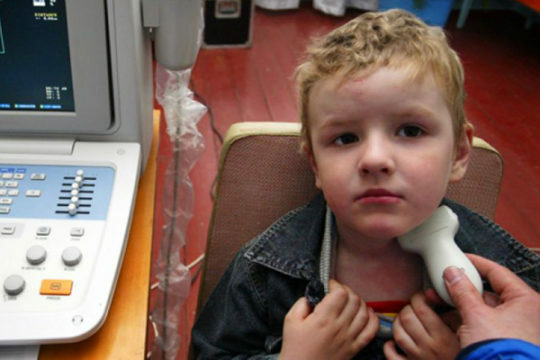
Causes of
Colloidal cysts of the thyroid gland in a child arise because of the outflow of the colloid. It is a special fluid that is responsible for the transportation of hormones produced by the thyroid gland. With violations and failures in the body, the follicles of this organ increase. And this, in turn, leads to the appearance of multiple cysts on the thyroid gland.
Some external and internal factors lead to the fact that the tissues of the thyroid gland are rapidly beginning to lose their elasticity and there is deformation in the cavity along with the colloidal fluid. This also leads to the formation of a colloid cyst in a child and in an adult.
There are several other reasons why a thyroid cyst occurs in a child:
- genetic heredity;
- deficiency of iodine in the body;
- hormonal imbalance;
- subcooling or overheating( heat stroke);
- stresses that affect a child's mental health;
- the effect of various harmful substances on the human body;
- poor ecological situation;
- received injuries thyroid;
- congenital organ abnormalities;
- thyroiditis.
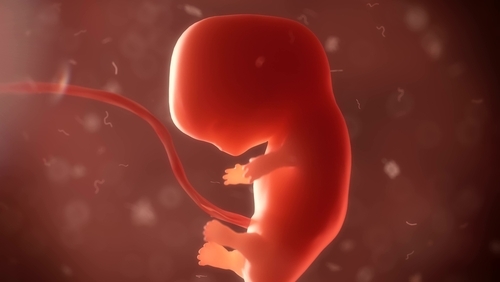
It should be noted that the most common cause of colloid cysts in children is congenital pathology.
Symptoms of
Like any other disease, the colloidal cyst of the thyroid gland has a number of its signs and symptoms. It should be said that all the symptoms manifest themselves only when the pathology reaches impressive proportions. If it is up to 1 centimeter, then the disease runs almost without symptoms. Only an experienced doctor will be able to diagnose during routine examination.
If it has reached more than 1 centimeter, then it is possible to diagnose her patient alone. It is enough to make a small palpation. Keep in mind that a large size pathology can bring discomfort. The person feels, that in the field of a neck there was a condensation. The following symptoms may appear:
- begins to perspire in the throat;
- the voice becomes hoarse;
- appears a strong and dry cough.
Further development and increase in the cyst leads to the fact that the blood vessels begin to be squeezed. As a result, hyperthyroidism begins to develop. This leads to the following symptoms:
- a sharp rise in body temperature, a rush of heat;
- violates the child's overall emotional state;
- begins to appear shortness of breath;
- increases the heartbeat.

Also the child becomes very moody and irritability appears. Children are not interested in doing their usual things: playing with their peers or toys, eating sweets and more.
If the tumor begins to fester, the patient will have the following symptoms:
- , there is a sharp pain in the neck;
- sharply increases body temperature to 38-39 degrees;
- appears chills.
The appearance of the neck is also slightly modified. There is an increase in the neck, as well as an increase in lymph nodes.
Diagnosis
The first thing to do if you suspect a colloid cyst of the thyroid gland is to go to the doctor for an examination. With the help of palpation, a specialist will determine whether or not there is a disease, and will tell the patient further actions.
Children are prescribed tests, including hormone tests. The next stage of diagnostics is ultrasound( ultrasound) and scintigraphy.
In order to determine the nature of the cyst, a puncture should be performed. This examination is also prescribed for children.
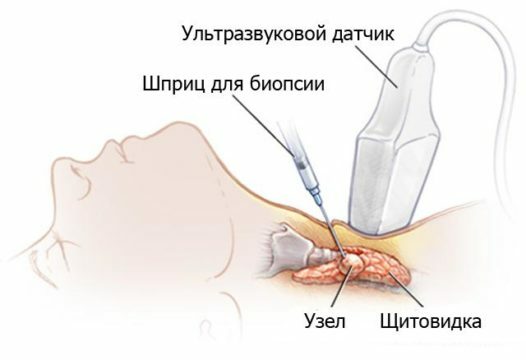
Note that the colloid cyst of the thyroid gland has the property of malignancy. In simple terms, it can be reborn. Especially it concerns children. In 25% of cases, cysts degenerate in children. A timely call to a doctor, constant check-ups and timely diagnostics can prevent this process and get rid of the disease once and for all.
Treatment of
It has already been said that a colloid cyst of the thyroid gland in children is, more often than not, an innate disease. After the procedure of puncture, you can accurately tell the cause of the appearance of pathology. In the event that the contents of the cyst are transparent, it can be argued that this disease has appeared since birth. There may also be purulent contents of the cyst. As a rule, pus happens in two colors:
- red;
- is dark brown.
Colloid cyst can be of two types: right-sided and left-sided. The treatment of these two types of cysts is also different. With a right-sided thyroid cyst, medication can be treated. In the event that it is revealed that the nature of the cyst is contagious, then treatment with antibacterial drugs is prescribed. It is noteworthy that the condition of the right-sided cyst can be observed during the treatment.
The left side can also be treated with medication. If such treatment is ineffective, then surgical intervention will be applied. Most often, a resection is prescribed.

Treatment of colloid cysts begins with conservative therapy. It consists in pumping the fluid with puncture. A special preparation is injected into the colloidal assembly, which promotes the fusion of the walls of the formation. It is very important that during the treatment period a child observe a diet that has prescribed treatment. It is a prerequisite. Otherwise, the whole process of recovery may be at risk, and the cyst will only grow, not decrease.
Forecast
The first question in patients who have been diagnosed with a colloid cyst is whether it is possible to cure this disease once and for all. If you believe in medical research, then in 90% of cases, colloid cysts are benign inflammations. They do not pose a serious threat to the health of an adult or child.
You need not be afraid of the cyst, but of the inflammatory diseases that led to the appearance of a cyst. In most cases, this is thyroiditis. Also, the following pathologies should be feared:
- infectious diseases that lead to the appearance of a colloid cyst;
- inflammatory processes in the body;
- dystrophic disorders in the area of follicular tissue.
If parents notice in time that the child has a suspicion of a colloid cyst and promptly turn to a specialist for help, then the treatment will be quick and almost painless. Do not be afraid of doctors and all medical procedures. It is necessary to explain to the child that the treatment will only benefit him and for the good. Especially since in childhood it is much easier to cope with any disease, including with thyroid diseases, than in an adult.

